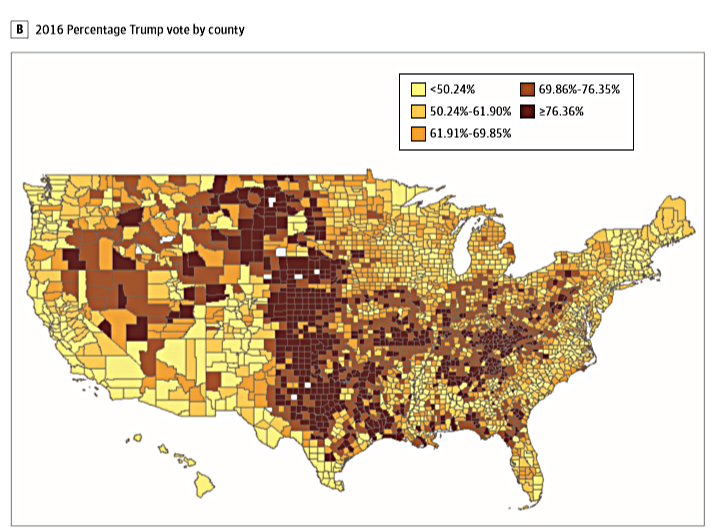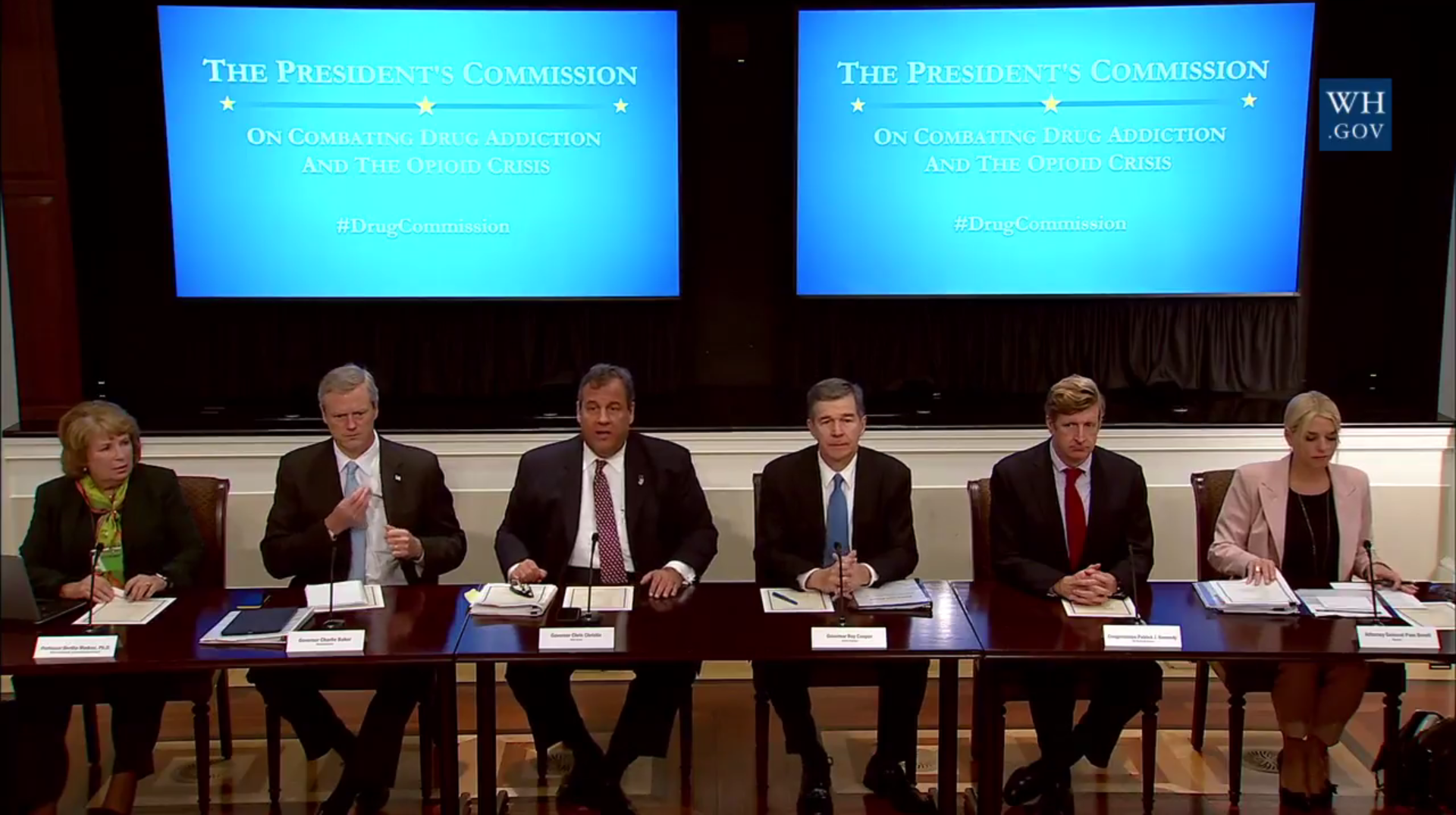By Arthur Allen, KFF Health News
Many scientists at the federal health agencies await the second Donald Trump administration with dread as well as uncertainty over how the president-elect will reconcile starkly different philosophies among the leaders of his team.
Trump announced Thursday he’ll nominate Robert F. Kennedy Jr. to be secretary of the Health and Human Services Department, after saying during his campaign he’d let the anti-vaccine activist “go wild” on medicines, food, and health.
Should Kennedy win Senate confirmation, his critics say a radical anti-establishment medical movement with roots in past centuries would take power, threatening the achievements of a science-based public health order painstakingly built since World War II.
Trump said in a post on the social platform X that “Americans have been crushed by the industrial food complex and drug companies who have engaged in deception, misinformation, and disinformation when it comes to Public Health,” echoing Kennedy’s complaints about the medical establishment. The former Democratic presidential candidate will “end the Chronic Disease epidemic” and “Make American Great and Healthy Again!” Trump wrote.
Vaccine makers’ stocks dipped Thursday afternoon amid news reports ahead of Trump’s RFK announcement.
If Kennedy makes good on his vision for transforming public health, childhood vaccine mandates could wither. New vaccines might never win approval, even as the FDA allows dangerous or inefficient therapies onto the market. Agency websites could trumpet unproven or debunked health ideas. And if Trump’s plan to weaken civil service rights goes through, anyone who questions these decisions could be summarily fired.
“Never has anybody like RFK Jr. gotten anywhere close to the position he may be in to actually shape policy,” said Lewis Grossman, a law professor at American University and the author of “Choose Your Medicine,” a history of U.S. public health.
Kennedy and an adviser Calley Means, a health care entrepreneur, say dramatic changes are needed because of the high levels of chronic disease in the United States. Government agencies have corruptly tolerated or promoted unhealthy diets and dangerous drugs and vaccines, they say.
Means and Kennedy did not respond to requests for comment. Four conservative members of the first Trump health bureaucracy spoke on condition of anonymity. They eagerly welcomed the former president’s return but voiced few opinions about specific policies. Days after last week’s election, RFK Jr. announced that the Trump administration would immediately fire and replace 600 National Institutes of Health officials. He set up a website seeking crowdsourced nominees for federal appointments, with a host of vaccination foes and chiropractors among the early favorites.
At meetings last week at Mar-a-Lago involving Elon Musk, Tucker Carlson, Donald Trump Jr., Kennedy, and Means, according to Politico, some candidates for leading health posts included Jay Bhattacharya, a Stanford University scientist who opposed covid lockdowns; Florida Surgeon General Joseph Ladapo, who opposes mRNA covid vaccines and rejected well-established disease control practices during a measles outbreak; Johns Hopkins University surgeon Marty Makary; and Means’ sister, Stanford-trained surgeon and health guru Casey Means.
All are mavericks of a sort, though their ideas are not uniform. Yet the notion that they could elbow aside a century of science-based health policy is profoundly troubling to many health professionals. They see Kennedy’s presence at the heart of the Trump transition as a triumph of the “medical freedom” movement, which arose in opposition to the Progressive Era idea that experts should guide health care policy and practices.
It could represent a turning away from the expectation that mainstream doctors be respected for their specialized knowledge, said Howard Markel, an emeritus professor of pediatrics and history at the University of Michigan, who began his clinical career treating AIDS patients and ended it after suffering a yearlong bout of long covid.
“We’ve gone back to the idea of ‘every man his own doctor,’” he said, referring to a phrase that gained currency in the 19th century. It was a bad idea then and it’s even worse now, he said.
“What does that do to the morale of scientists?” Markel asked. The public health agencies, largely a post-WWII legacy, are “remarkable institutions, but you can screw up these systems, not just by defunding them but by deflating the true patriots who work in them.”
FDA Commissioner Robert Califf told a conference on Nov. 12 that he worried about mass firings at the FDA. “I’m biased, but I feel like the FDA is sort of at peak performance right now,” he said. At a conference the next day, CDC Director Mandy Cohen reminded listeners of the horrors of vaccine-preventable diseases like measles and polio. “I don’t want to have to see us go backward in order to remind ourselves that vaccines work,” she said.
Stocks of some the biggest vaccine developers fell after news outlets led by Politico reported that the RFK pick was expected. Moderna, the developer of one of the most popular covid-19 vaccines, closed down 5.6%. Pfizer, another covid vaccine manufacturer, fell 2.6%. GSK, the producer of vaccines protecting against respiratory syncytial virus, hepatitis A and B, rotavirus, and influenza, fell just over 2%. French drug company Sanofi, whose website boasts its products vaccinate over 500 million annually, tumbled nearly 3.5%.
Exodus From Health Agencies?
With uncertainty over the direction of their agencies, many older scientists at the NIH, FDA, and Centers for Disease Control and Prevention are considering retirement, said a senior NIH scientist who spoke on the condition of anonymity for fear of losing his job.
“Everybody I talk to sort of takes a deep breath and says, ‘It doesn’t look good,’” the official said.
“I hear of many people getting CVs ready,” said Arthur Caplan, a professor of bioethics at New York University. They include two of his former students who now work at the FDA, Caplan said.
Others, such as Georges Benjamin, executive director of the American Public Health Association, have voiced wait-and-see attitudes. “We worked with the Trump administration last time. There were times things worked reasonably well,” he said, “and times when things were chaotic, particularly during covid.” Any wholesale deregulation efforts in public health would be politically risky for Trump, he said, because when administrations “screw things up, people get sick and die.”
At the FDA, at least, “it’s very hard to make seismic changes,” former FDA chief counsel Dan Troy said.
But the administration could score easy libertarian-tinged wins by, for example, telling its new FDA chief to reverse the agency’s refusal to approve the psychedelic drug MDMA from the company Lykos. Access to psychedelics to treat post-traumatic stress disorder has grabbed the interest of many veterans. Vitamins and supplements, already only lightly regulated, will probably get even more of a free pass from the next Trump FDA.
‘Medical Freedom’ vs ‘Nanny State‘
Trump’s health influencers are not monolithic. Analysts see potential clashes among Kennedy, Musk, and more traditional GOP voices. Casey Means, a “holistic” MD at the center of Kennedy’s “Make America Healthy Again” team, calls for the government to cut ties with industry and remove sugar, processed food, and toxic substances from American diets. Republicans lampooned such policies as exemplifying a “nanny state” when Mike Bloomberg promoted them as mayor of New York City.
Both the libertarian and “medical freedom” wings oppose aspects of regulation, but Silicon Valley biotech supporters of Trump, like Samuel Hammond of the Foundation for American Innovation, have pressed the agency to speed drug and device approvals, while Kennedy’s team says the FDA and other agencies have been “captured” by industry, resulting in dangerous and unnecessary drugs, vaccines, and devices on the market.
Kennedy and Casey Means want to end industry user fees that pay for drug and device rules and support nearly half the FDA’s $7.2 billion budget. It’s unclear whether Congress would make up the shortfall at a time when Trump and Musk have vowed to slash government programs. User fees are set by laws Congress passes every five years, most recently in 2022.
The industry supports the user-fee system, which bolsters FDA staffing and speeds product approvals. Writing new rules “requires an enormous amount of time, effort, energy, and collaboration” by FDA staff, Troy said. Policy changes made through informal “guidance” alone are not binding, he added.
Kennedy and the Means siblings have suggested overhauling agricultural policies so that they incentivize the cultivation of organic vegetables instead of industrial corn and soy, but “I don’t think they’ll be very influential in that area,” Caplan said. “Big Ag is a powerful entrenched industry, and they aren’t interested in changing.”
“There’s a fine line between the libertarian impulse of the ‘medical freedom’ types and advocating a reformation of American bodies, which is definitely ‘nanny state’ territory,” said historian Robert Johnston of the University of Illinois-Chicago.
Specific federal agencies are likely to face major changes. Republicans want to trim the NIH’s 27 research institutes and centers to 15, slashing Anthony Fauci’s legacy by splitting the National Institute of Allergy and Infectious Diseases, which he led for 38 years, into two or three pieces.
Numerous past attempts to slim down the NIH have failed in the face of campaigns by patients, researchers, and doctors. GOP lawmakers have advocated substantial cuts to the CDC budget in recent years, including an end to funding gun violence, climate change, and health equity research. If carried out, Project 2025, a policy blueprint from the conservative Heritage Foundation, would divide the agency into data-collecting and health-promoting arms. The CDC has limited clout in Washington, although former CDC directors and public health officials are defending its value.
“It would be surprising if CDC wasn’t on the radar” for potential change, said Anne Schuchat, a former principal deputy director of the agency, who retired in 2021.
The CDC’s workforce is “very employable” and might start to look for other work if “their area of focus is going to be either cut or changed,” she said.
‘It Won’t Be Harmless’
Kennedy’s attacks on HHS and its agencies as corrupted tools of the drug industry, and his demands that the FDA allow access to scientifically controversial drugs, are closely reminiscent of the 1970s campaign by conservative champions of Laetrile, a dangerous and ineffective apricot-pit derivative touted as a cancer treatment.
Just as Kennedy championed off-patent drugs like ivermectin and hydroxychloroquine to treat covid, Laetrile’s defenders claimed that the FDA and a profit-seeking industry were conspiring to suppress a cheaper alternative.
The public and industry have often been skeptical of health regulatory agencies over the decades, Grossman said. The agencies succeed best when they are called in to fix things — particularly after bad medicine kills or damages children, he said.
The 1902 Biologics Control Act, which created the NIH’s forerunner, was enacted in response to smallpox vaccine contamination that killed at least nine children in Camden, New Jersey. Child poisonings linked to the antifreeze solvent for a sulfa drug prompted the modern FDA’s creation in 1938. The agency, in 1962, acquired the power to demand evidence of safety and efficacy before the marketing of drugs after the thalidomide disaster, in which children of pregnant women taking the anti-nausea drug were born with terribly malformed limbs.
If vaccination rates plummet and measles and whooping cough outbreaks proliferate, babies could die or suffer brain damage.
“It won’t be harmless for the administration to broadly attack public health,” said Alfredo Morabia, a professor of epidemiology at Columbia University and the editor-in-chief of the American Journal of Public Health. “It would be like taking away your house insurance.”
KFF Health News is a national newsroom that produces in-depth journalism about health issues.















